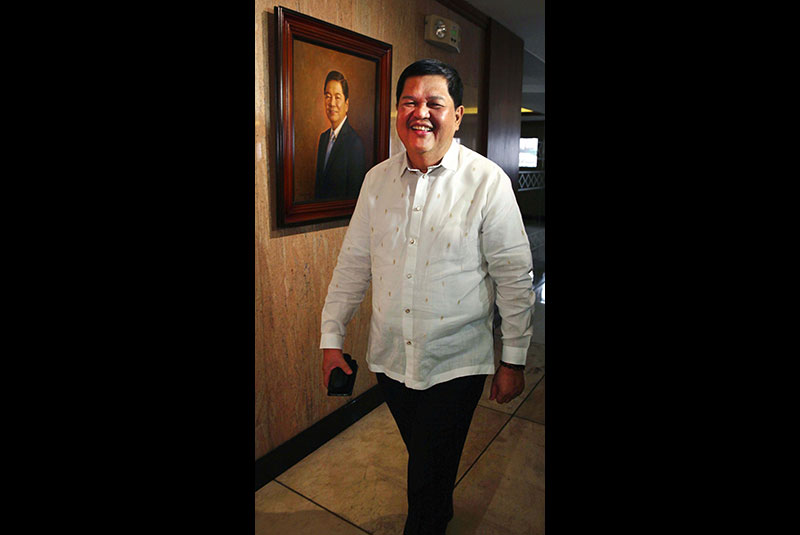Espenilla prefers voluntary lending over mandated credit

BSP Governor Nestor Espenilla Jr. said in his keynote address during the 1st General Membership Meeting and Induction of Officers of the Credit Management Association of the Philippines (CMAP) that he prefers banks to lend on a voluntary basis. MIKE AMOROSO/File
MANILA, Philippines - The Bangko Sentral ng Pilipinas (BSP) said major stakeholders in the banking industry should help fix the barriers to lending so the regulator could do away with mandated lending.
BSP Governor Nestor Espenilla Jr. said in his keynote address during the 1st General Membership Meeting and Induction of Officers of the Credit Management Association of the Philippines (CMAP) that he prefers banks to lend on a voluntary basis.
“Mandated lending is basically you require the lender ready or not, on a quota basis, to lend to a segment that creditor may or may not be ready to serve. So that is where the problem lies,” Espenilla said.
More often than not, Espenilla explained banks are faced with the difficult choice of not complying and instead pay the fine rather than lending to customers that they are not geared to serve.
“If you comply even though the risk is something that you may not know how to control, you may actually lose a lot because you may lose principal. That is the problem with that (mandated lending), it is not really market oriented,” he said.
“There is a need to fix the barriers to lending rather than forcing banks to lend to a direct sector,” according to Espenilla.
He said there is a need to improve the credit information law and address the difficulty of enforcing contracts.
In the first quarter alone, banks continued to fall short of the mandated threshold for lending to the agriculture and agrarian reform sector under Republic Act 1000 or the Agri-Agra Reform Credit Act of 2009.
RA 10000 retained the mandatory credit allocation in Presidential Decree 717 where 25 percent of banks’ total loanable funds are to be set aside for agriculture and fisheries in general, of which at least 10 percent should be made available for agrarian reform beneficiaries.
However, banks were only able to allot 12.85 percent or P465.56 billion of its P3.63 trillion loanable funds for the agriculture sector and1.02 percent or P36.89 billion for the agrarian reform sector.
Likewise, data from the BSP showed banks continued to fall short of the mandated lending for microfinance and small and medium enterprises (MSMEs) under RA 6977 as amended by RA 8289 and 9501 or the Magna Carta for SMEs.
Loans extended by banks to MSMEs reached P494.88 billion or 8.4 percent of total loan book but still below the mandated threshold of 10 percent.
MSMEs account for 99.5 percent of the country’s total establishments and employ about 61.6 percent of the workforce.
“Asymmetry in credit info for MSMEs results in the entire segments being subject to higher risk premiums or even outright exclusion. MSME borrowers either face higher borrowing costs or are forced to turn to informal lenders for their financing requirements. I urged you, industry leaders to be mindful of this and to help prevent further proliferation of this practice,” Espenilla said.
- Latest
- Trending


























